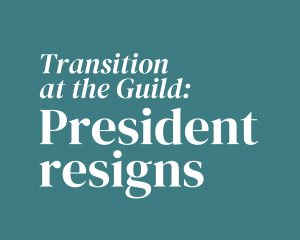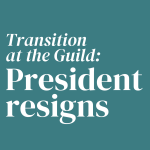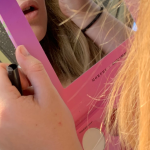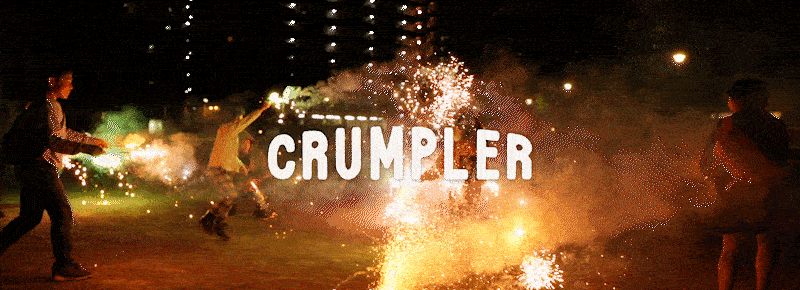[wonderplugin_slider id=1]
In June 2022, the above images surfaced of the Indonesian military mobilising to protect the Grasberg mine, operated by Freeport-McMoRan. As infrastructure projects in the region continue, the sectarian-Indonesian conflict shows no sign of simmering down. Photographs provided to Glass by the Free Papua Movement, who operate across the Indonesian/ Papua New Guinean border.
As the world demands the human right of self-determination for Ukraine, West Papua remains trapped under colonial conditions.
In 2022, the world grapples with a self-determination crisis; how do we support Ukraine without provoking a greater conflict? In the years since the Cold War, movements for self-determination have gained strength across the world. But positive change, often achieved through struggle and violence, is yet to take place in the Indonesian territory of West Papua.
The 20th and 21st centuries saw, and continue to see, a rise of independence movements across the world in response to centuries of colonial brutality. These movements, often codified in wars and certified by the emergence of new states, are seen retrospectively as movements for freedom and self-determination. Ethnic cleansings like those in Xinxiang and the Balkans tend now to be met by scrutiny and outrage from the West, who occasionally intervene militarily or economically. But the liberal-Western cult of self-determination extended to places like Hong Kong, the states of the former Soviet Union, and Eastern Europe is less focused on the pacific region of West Papua.

Indonesia, formerly the colony of the Dutch East Indies, became independent when the Proclamation of Indonesian Independence was read in Jakarta on August 17th, 1945. The ensuing four-year conflict with the Netherlands resulted in the eventual sovereignty of what is now Indonesia. But Indonesia is hardly a single entity.
The national revolution that created Indonesia did not originally include West Papua, which remained a Dutch territory. West Papua declared independence in 1961, gaining brief international recognition before the violent regime of President Sukarno came to occupy the region. In ceding West Papuan independence, the West believed they could manipulate President Sukarno and then his successor President Suharto, thus ensuring Indonesia would not become a communist nation. In 1961, two years after having declared independence from the Netherlands, West Papua was invaded and occupied by Indonesia, which has maintained a strong military presence ever since.
Opposition in West Papua was quelled through violence, and in 1969, the Indonesian Military individually selected 1,025 West Papuans to vote in a plebiscite. It is believed these voters, mostly tribal elders, had either been personally threatened, or had their families threatened. The Act of Free Choice, the resulting legal resolution, was passed unanimously, enshrining Indonesian control over the territories. This process was not conducted with U.N oversight.
The Most Isolated People in the World
The region of West Papua consists of the two Indonesian provinces on the island of New Guinea, confusingly referred to as Papua and West Papua. The mountainous island just north of Australia is home to the world’s second-largest rainforest, hosting a diverse range of plant and animal species – some still unknown to the outside world. The region is notable for its distinct ethnolinguistic populations aligned more closely with the neighbouring peoples of Papua New Guinea, the nation comprising the island’s eastern half. Over 250 tribes live in the territory and speak more than 400 languages.

But physical isolation is only part of the West Papuan story. The Indonesian government has restricted access to the region for foreign journalists, researchers, and UN Officials. Additionally, Indigenous West Papuans regularly experience racism and racist violence at the hands of Indonesian authorities.
Today, the 5.5 million people of West Papua are few in comparison to Indonesia’s population of over 270 million. Native Papuans survive through subsistence agriculture, whereas non-Papuan Indonesians dominate commercial centres on the island. The life expectancy for West Papuans also lags behind Indonesians, as does infant mortality. Calling for West Papuan Independence is considered treason under Indonesian law – raising the Morning Star flag is punishable by up to fifteen years in prison.
Across the border in Papua New Guinea, Gary Juffa leads a political movement advocating for the people of West Papua. The People’s Movement for Change leader, and the Governor of Oro Province, Juffa, is fiercely involved in the West Papuan Liberation Movement. To Juffa, and most others in the movement, the Act of Free Choice is “The Act of No Choice,” and he notes that West Papuan adults were excluded from voting and those who did were intimidated by Indonesian brutality.
‘Is the Act of Free Choice valid, given the referendum only allowed 1,025 elders to vote on behalf of the entire population of West Papua?’ Juffa asks.
Juffa first became an advocate for the West Papuan people when, while working as a public servant in his country’s customs, he witnessed first-hand the mass movement of people across the Indonesian border.
‘The border with Indonesia is a very porous border,’ Juffa says.
‘People were fleeing for various reasons due to the unrest there, and that unrest has been attributed primarily to an ongoing conflict between the Indigenous people … [who] are hostile to the illegal occupation of their land by Indonesian forces.’
Juffa says this migration has been a common feature of the border ever since the conflict first broke out in the 1960s.
‘During the 1969 takeover, there was a huge spillover of refugees coming across to PNG from West Papua.’ Juffa says this movement continues to this day.
For Juffa, Indonesia itself is a Western invention, and Western convenience is primarily to blame for the occupation of West Papua.
‘[The West] was fearful in the sixties that Indonesia would move across to the communist nations,’ Juffa said, keen to highlight that Western complicity in Indonesia’s brutality can be traced back prior to the occupation.
‘The system installed there by the [Dutch colonial powers] remains.’
“They use the same system, thus extracting profits. Bloody profits – but profits nonetheless.”
Gary Juffa, Govenor of Oro Province, Papua New Guinea
‘These people may not be white, but they’re still people. They deserve to live in this world, on this planet, with dignity, and have freedoms and rights that we are all preaching about.’
But Gary is apprehensive to reduce international apathy to race alone.
‘Is it because they’re not the right colour? You can’t really play the race card because there are instances in Europe where terrible things were happening; [the West] ignored that too,’ Juffa says.
He notes, however, that Western intervention and ignorance in Europe tends to fall along political and economic lines.
In Juffa’s eyes, the occupation of West Papua can easily be considered a genocide.
‘When you think about it, the record says about 500,000 to 700,000 people have died since 1969.’
‘No one has been able to go on and confirm these statistics, but there’s a lot of information coming out, especially now with the advances in technology – internet, smartphones. The violence is a fact you cannot dispute.’
Political Disobedience and the West Papuan ‘President’
The violence to which Juffa refers is documented by a growing archive of video and photo evidence of authoritarian violence, culminating in the expulsion and persecution of political leaders and journalists. The highest-profile example of this is the exiled West Papuan leader Benny Wenda, who refers to himself as the “West Papuan ‘President”.
Chairman of the United Liberation Movement for West Papua, Benny Wenda, is a West Papuan activist and a pre-eminent voice for the movement internationally. After having allegedly led a pro-independence procession in 2002 that turned violent, Wenda was charged with sedition by the Indonesian government. With potentially 25 years in prison awaiting him, Wenda fled the country while on trial in 2003 and currently resides in the United Kingdom.
In 2015 three pro-independence factions merged to form the United Liberation Movement, who Wenda claims have backed him as the West Papuan President in exile. However, the region’s support for Wenda remains unclear, and the independence movement has long been fragmented.
Jeffery Bomanek, chairman of the Free Papua Movement (also known as Organisasi Papua Merdeka or OPM) calls Wenda’s claim to be President in exile baseless, describing his operation as ‘illegal’.
‘He just claims be come president out of internal democratic [process],’ Bomanek says.
‘[Wenda is] lying with media propaganda only, [using] social media platforms for getting popularity … he claims president but [no one elected] him …’
But even fractured, Wenda is an influential international figure when it comes to advocating for West Papua. Amid rising violence, in 2019, Wenda called on then Prime Minister Scott Morrison to not allow the increasingly repressive control of the region to become ‘another East-Timor’, referencing the decades-long guerrilla war in Timor Leste between Indonesia and local rebels, eventually resolved after ANZAC intervention in 2002.
‘I hope the Australian Prime Minister will make a statement about the current situation. We need Australia to come out and make a public statement about the humanitarian crisis in West Papua.’
Benny Wenda, Chairman of the United Liberation Movement for West Papua
‘Western powers are reluctant to give support because of investments in West Papua,’ Wenda told Glass Media.
‘The biggest gold mine in the world is in West Papua, it has been run by Freeport and Rio Tinto, two western companies. Western powers and corporations are very involved in colonialism in New Guinea. But that doesn’t stop people in the West from supporting West Papuan liberation, and they should push their government to support us too.’
‘The west pays attention in Ukraine because wars are happening in front of their eyes there. But war in West Papua has been happening for sixty years; for sixty years we have been killed and occupied. Western powers give support to the Ukrainians, financially and by supplying ammunition. Why don’t western powers support west papua in the same way? Indonesia is illegally occupying our country. Almost 500,000 men, women and children have been killed; this is a genocide.’
Similarly, Indonesian journalist and lawyer Veronica Koman, who consistently advocates for the human rights of West Papuans, currently lives in self-imposed exile in Australia. Koman, and legal advocates like her, face significant risks to their security in Indonesia, regularly fielding both legal and death threats. Koman has been charged with incitement and spreading misinformation in Indonesia, whose government has accused her of expressing ‘race-based hatred’ and disseminating information ‘aimed at inflicting ethnic hatred.’
Veronica Koman was contacted for additional comment.
Why West Papua?
As with their European predecessors, Indonesia’s brutality in West Papua is rooted in colonial extraction. West Papua, similar to Australia and Papua New Guinea, is one of the world’s densest mineral deposits. Its small population and high resource density make it a location of interest to international corporations.
Minerals – especially gold and copper – natural gas, and timber have been harvested from West Papua for years by Indonesia with the assistance of foreign companies. For example, the Grasberg mine, one of the world’s largest mines, was operated by American company Freeport-McMoRan for gold and copper for decades before the Indonesian government took it over. In addition, a British Petroleum-led international consortium operates the nearby Tangguh gas field, one of the Asia-Pacific’s largest gas reserves.
Logging old-growth forest is also a lucrative industry in West Papua, not just through timber exports but through the installation of palm oil plantations. Deforestation in the region has also seen a rise in the illegal hunting and poaching of displaced, rare birds. Some birds can fetch up to $1,500 USD in markets in Indonesian cities.
The sale of resources will be accelerated in the coming years after the 4,500 km trans-Papuan highway completes construction. However, local peoples rarely benefit from these extractive practices, and are often seen by the state as obstacles to actualising potential profits.
Indonesian rule in West Papua has been met with allegations of human rights abuses since the 1960s. In 2021, the United Nations reported receiving ‘allegations indicating several instances of extrajudicial killings, including of young children, enforced disappearance, torture and inhuman treatment and the forced displacement of at least 5,000 Indigenous Papuans by security forces.’
‘Indonesia is keen to make one thing clear – that [West Papua] is a territory of Indonesia.’
Gary Juffa
In defence of their actions in the region, Indonesia has routinely accused movements of independence in West Papua of failing to respect the Act of Free Choice. But the contentious legal and ethical framework of the AOFC makes this claim dubious to many.
‘If we are talking about the acts of brutality, repression, oppression, and violence in retaliation for people standing up and demanding freedom, or engaging in acts relating to their freedom, I’m not sure how that violates the Act of Free Choice,’ Juffa contends. Like many in the region, he doesn’t believe the referendum should be considered a valid Act given its original application.
‘There were about 700,000 adults at the time [1969],’ Juffa says. ‘You’d need at least 300,000 plus votes to legitimate such a referendum.’
‘This is something that needs to be corrected by the world.’
‘It’s not as if Papua New Guinea can demand West Papua be free,’ Juffa says.
‘If we stood up and demanded that, would other countries support us? Indonesia is a fairly large country with a huge military. What would stop them from walking across [the border] and saying shut up? Would the West come to our rescue? Or would Indonesia just have a referendum and say: oh, one thousand people here want to be a part of Indonesia, let’s take this too?’
‘It’s not as if the government of Papua New Guinea is in a position to really do anything more for West Papua – they’ve had to understand that the rest of the world isn’t doing anything.’
The Australian government took no action during Morrison’s administration to aid the West Papua Liberation Movement, which the Commonwealth still officially opposes. It is unclear how the new Labor government will differ on this point.
However, the Australian government did provide military assistance to Ukraine, at the request of Ukrainian President Volodymyr Zelenskyy, to assist in retaining Ukrainian sovereignty amid the ongoing Russian invasion.
The Australian Foreign Minister’s office was contacted for comment
The Political Will for Freedom

It is not surprising to experts that the current Russian invasion and partial occupation of Ukraine has triggered international outrage and sanctions. According to Bloomberg Analyst Andreas Kluth, the likely outcome of this war is a temporary partial occupation for Russia that will cost a complete economic backflip and an internal political crisis. She notes that the Russian Federation’s “Shock Without Awe” approach to recolonising Ukraine has been met with revulsion and crippling sanctions from most of the world, including Australia.
So, what is the difference between Ukraine and West Papua to Australia? For starters, Western powers, led by then US President John F Kennedy, saw the respective Sukarno and Suharto governments’ control of the region as a necessary buffer to the growth of communism. Kennedy even went so far as to write to the Dutch Prime Minister, Jan de Quay, encouraging the Netherlands to relinquish control of Western New Guinea. West Papua was a bartering chip for global powers.
These realpolitikal aspirations of powerful states remain a driving force behind international interventions. Self-determination is a human-right and has the popular support of many Westerners, but when competing with China and Russia, self-interest seems to take the driver’s seat.
‘The world [needs] to pay attention to this issue and what’s happening over there, just as they are paying attention to, for instance, the conflict in Ukraine,’ Juffa says.
‘If the media can pay attention to that matter, why can’t they pay attention to this matter?’
‘The difference is: Russia has not been endorsed to invade Ukraine, whereas Indonesia has been allowed.’
Gary Juffa
‘Everyone’s up in arms. They’re putting flags on their social media profiles, there’s news articles galore, they’re sending money, weapons. Well, what’s the difference between those people of Ukraine and the people of West Papua? How come the West Papuan issue has not received anywhere near the same attention?’
While Indigenous West Papuans trend strongly in favour of independence, it’s hard to discern the true level of support for independence that remains in the region.
Since the formal Indonesian takeover of the region, the Indonesian government has incentivised the transmigration of non-Melanesian Indonesians, uprooting existing demographics. Over 750,000 people have resettled in West Papua under the government’s program, the majority from Java and Sulawesi. Any Indonesian citizen and family are eligible to participate in the scheme, which entitles them to government assistance in relocating.
Advocates have likened the situation to European settler-colonialism and the resulting social structure to Apartheid. A key-consequence of the program is the dilution of anti-Indonesian sentiment in West Papua.
However, in January 2019 Benny Wenda handed the Indonesian government a petition of 1.8 million signatures from within the region in favour of independence. The petition was conducted in secret in West Papua and has not been recognised as a legal petition either by Indonesia or internationally.
‘Why can’t it be a legal petition?’ Juffa asks. ‘It’s the desire of 1.8 million people who want to be free.’
A Rise in Violence

Coinciding with this petition, tensions between West Papuans and the Indonesian government re-escalated on December 1st 2018, when the West Papua Liberation Army attacked construction workers from Istaka Karya, an Indonesian construction company building a bridge over the Yigi River. The site was a part of the Trans-Papua Highway project, which Indonesia’s Wododo government have called an essential infrastructure project, intended to improve access to commercial markets and services for people in the region.
But to many West Papuans, the highway will only assist in extracting local resources by the Indonesian government and foreign multinationals. Additionally, it is believed that the highway will grant greater ease of access to the Indonesian Military, who will continue their occupation of the region with this new infrastructure.
Anger over the contentious project culminated in the 2018 attack on the Istaka Karya workers, leaving 19 civilians and one soldier dead. In response to the massacre, hundreds of additional police and soldiers were deployed to the territory by their government to arrest those responsible for the attack.
With this deployment came a draconian crackdown – Indonesian forces burnt buildings and beat and tortured Indigenous West Papuans. After weeks of violence and bloodshed, Indonesia ordered an internet blackout in West Papua. It is believed that hundreds of people have so far been killed since 2018, and local sources estimate that 45,000 West Papuans have been displaced. However, Indonesia disputes this number, claiming only 2,000 people have fled.
Responding to the rising tensions, Indonesian Security Affairs Minister Mohammad Mahfud – known as Mahfud MD – acknowledged that his government had not done enough to help Indigenous Papuans. However, Mahfud sees the tension in the region arising from underdevelopment due to funding issues, blaming corrupt local officials for siphoning money.
‘We have prepared a presidential decree that is now being studied so that development in Papua can truly be felt by the people,’ he said. ‘The budget for Papua is huge, but it is corrupted by the elites there so it does not reach the people.’
The human rights organisation Human Rights and Peace in Papua estimate that the fighting has displaced as many as 60,000 Papuans. The crackdown triggered statements from the United Nations Human Rights Office, urging Indonesia to ‘uphold people’s rights to freedom of expression, peaceful assembly and association in line with its international obligations.’ Amnesty International has since identified almost forty political prisoners in West Papua, charged with treason for the ‘peaceful and legitimate expression of their views.’
West Papuan activist Victor Yeimo, the former General Secretary of the West Papua National Committee, was arrested in 2021 without a warrant – in breach of Indonesian law. Despite engaging only in peaceful protests, Yeimo has been charged with incitement, arson, theft using violence and collective violence, illegal possession of slashing and stabbing arms, and other crimes relating to language and the national emblem. To date, evidence of these crimes has not been made available to journalists.
CIVICUS, a global civil society alliance, and the Asian Human Rights Commission released a joint statement regarding what they call Yeimo’s arbitrary detention, calling for the ‘immediate and unconditional release of Victor Yeimo and all other political prisoners in Papua.’
Yeimo has a history of gastric and lung disease, previously having been diagnosed with empyema of the gallbladder, tuberculosis, hypocalcemia, and leukocytosis. His health is of grave concern to his supporters.
The failure of peaceful resistance in West Papua has led to increased support for guerrilla fighters like 21-year-old Egianus Kogoya Murka, whose growing militia now includes child soldiers.
When speaking to the ABC in 2020, local West Papuan woman Irian Kogoya was sympathetic to the armed movements.
‘The kids don’t come because Egianus called them or asked them to,’ she said.
‘But those whose fathers got shot, tortured, then died — after that, many [children] would come out [to fight].’
‘Many school children in Nduga have come out to join the war.’
A New Militarisation
Indonesian militarisation of the region only continues to increase. Images shared with Glass by the OPM reveal a new deployment of forces by Indonesia in West Papua, intending to defend commercial assets from rebel forces.
[wonderplugin_slider id=1]
Moving forward, it seems unlikely the West Papuan people will see any respite soon. Most see the steps toward an eventual independence vote will as difficult, and even unlikely at all. Without international pressure, Indonesia has no incentive to cease operations in West Papua, or to cede sovereignty. The political will this pressure would require is currently lacking worldwide.







